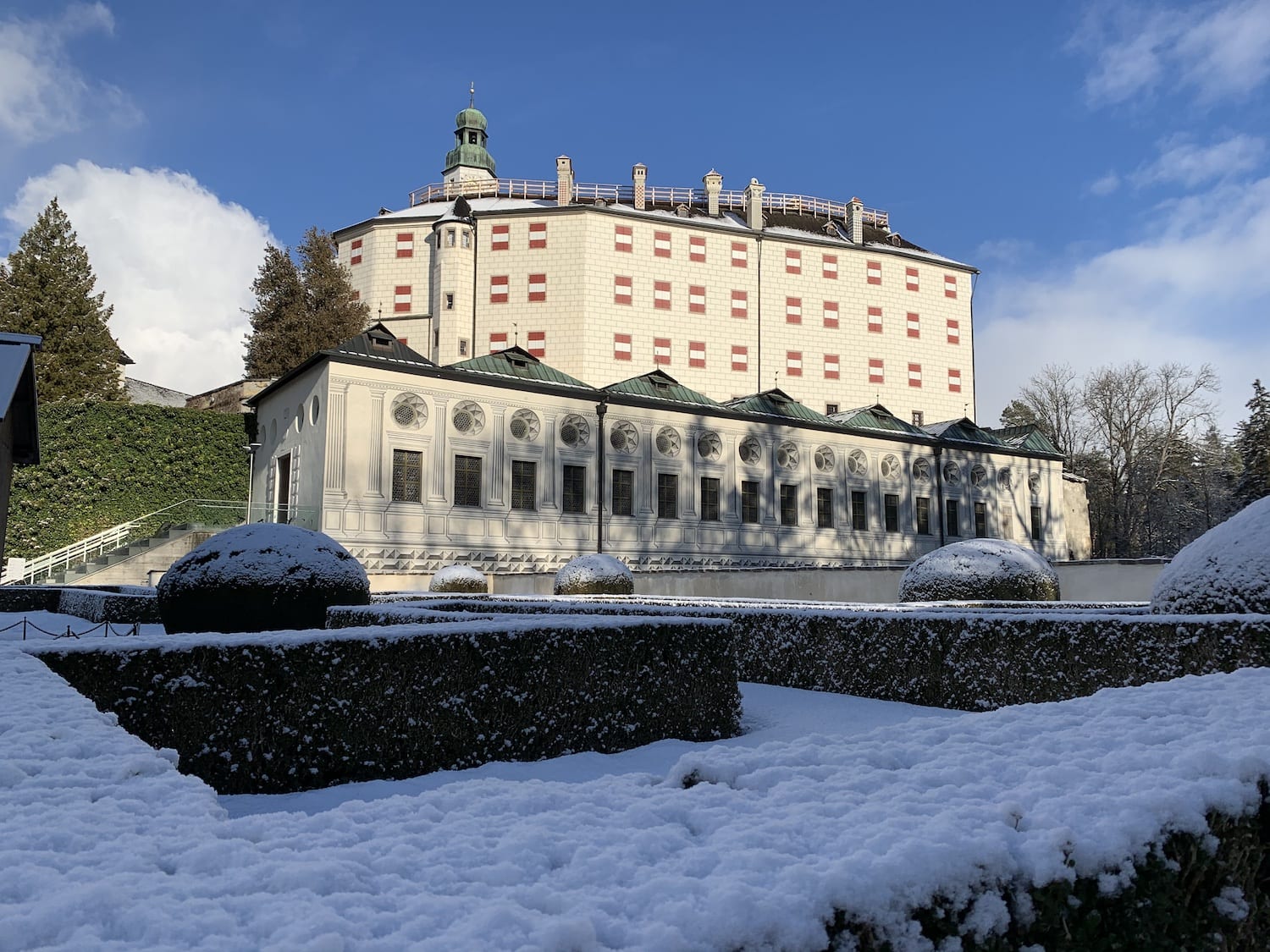Philippine Welser: Little Venice, cookery, herbalism
Philippine Welser: Klein Venedig, Kochbücher und Kräuterkunde
Philippine Welser (1527 - 1580) was the wife of Archduke Ferdinand II and one of Innsbruck's most popular rulers. The Welsers were one of the wealthiest families of their time. Their uncle Bartholomäus Welser was similarly wealthy to Jakob Fugger and also came from the class of merchants and financiers who had acquired enormous wealth around 1500. The pillars of this wealth were the spice trade with India and the mining and metal trade with the American colonies. Welser had also granted loans to the Habsburgs. Instead of paying off the loans, Emperor Charles V pledged some of the newly annexed lands in America to the Welser family, who in return received the land as a colony. Klein-VenedigVenezuela, with fortresses and settlements. They organised expeditions to discover the legendary land of gold El Dorado to discover. In order to get as much as possible out of their fiefdom, they established trading posts to participate in the profitable transatlantic slave trade between Europe, West Africa and America. Although Charles V prohibited trade with indigenous people from South Africa after 1530, the use of African slaves on the plantations and in the mines was not covered by this regulation. The brutal behaviour of the Welser led to complaints at the imperial court in 1546, where they were denied the fiefdom for Klein-Venedig was subsequently withdrawn. However, their trade relations remained intact.
Ferdinand and Philippine met at a carnival ball in Pilsen. The Habsburg fell head over heels in love with the wealthy woman from Augsburg and married her. Nobody in the House of Habsburg was particularly pleased about the couple's secret marriage, even though the business relationships between the aristocrats and the newly rich Augsburg merchants were already several decades old and the Welser's money could be put to good use. Marriages between commoners and aristocrats were considered scandalous and not befitting their status, despite their wealth. The emperor only recognised the marriage after the couple had asked for forgiveness for their marriage and pledged themselves to eternal secrecy. The children of the morganatic marriage were therefore excluded from the succession.
Philippine galt als überaus schön. Ihre Haut sei laut Zeitzeugen so zart gewesen, „man hätte einen Schluck Rotwein durch ihre Kehle fließen sehen können". Ferdinand had Ambras Castle remodelled into its present form for his beloved wife. His brother Maximilian even said that "Ferdinand verzaubert sai" by the beautiful Philippine Welser when Ferdinand withdrew his troops during the Turkish war to go home to his wife. The epilogue is less flattering "...I wanted the brekin to be in a sakh and what not. God forgive me."
Philippine Welser's passion was cooking. There is still a collection of recipes in the Austrian National Library today. In the Middle Ages and early modern times, the art of cookery was practised exclusively by the wealthy and aristocrats, while the vast majority of subjects had to eat whatever was available. The Middle Ages and modern times, in fact all people up until the 1950s, lived with a permanent lack of calories. Whereas today we eat too much and get ill as a result, our ancestors suffered from illnesses caused by malnutrition. Fruit was just as rare on the menu as meat. The food was monotonous and hardly flavoured. Spices such as exotic pepper were luxury goods that ordinary people could not afford. While the diet of the ordinary citizen was a dull affair, where the main aim was to get the calories for the daily work as efficiently as possible, the attitude towards food and drink began to change in Innsbruck under Ferdinand II and Philippine Welser. The court had contributed to a certain cultivation of manners and customs in Innsbruck since Frederick IV, and Philippine Welser and Ferdinand took this development to the extreme at Ambras Castle and Weiherburg Castle. The banquets they organised were legendary and often degenerated into orgies.
Herbalism was her second hobbyhorse. Philippine Welser described how to use plants and herbs to alleviate physical ailments of all kinds. "To whiten and freshen the teeth and kill the worms in them: Take rosemary wood and burn it to charcoal, crush it all to powder, bind it in a silken cloth and rub the teeth with itwas one of her tips for a healthy and cultivated existence. She had a herb garden created at Ambras Castle in Innsbruck for her hobby and her studies.
According to reports of the time, she was very popular among the Tyrolean population, as she took great care of the poor and needy. The care of the needy, led by the town council and sponsored by wealthy citizens and aristocrats, was not a speciality at the time, but common practice. Closer to salvation in the next life than through Christian charity, Caritasyou could not come.
, konnte man nicht kommen. Ihre letzte Ruhe fand Philippine Welser nach ihrem Tod 1580 in der Silbernen Kapelle in der Innsbrucker Hofkirche. Gemeinsam mit ihren als Säugling verstorbenen Kindern und Ferdinand wurde sie dort begraben. Unterhalb des Schloss Ambras erinnert die Philippine-Welser-Straße an sie.
Sights to see...
Philippine-Welser-Straße
Philippine-Welser-Straße
Weiherburg & Alpine Zoo
Weiherburggasse 37-39
Schloss Ambras
Schloßstraße 12-20
